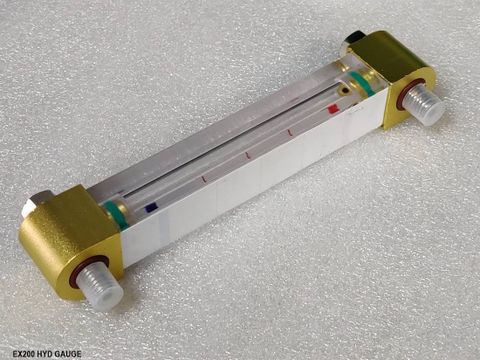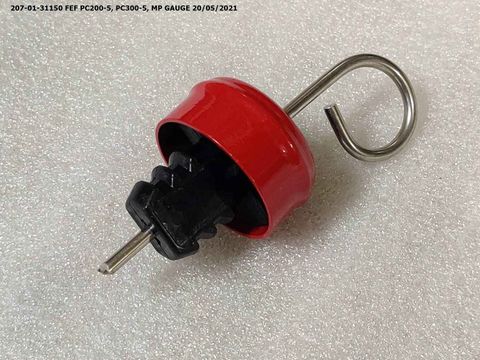Hydraulic Gauge Excavator Spare Part HITACHI KOMATSU VOLVO
Last Update
Price:
R.F.Q.
Share Product:
Detail
Free Catalogue Website: www.heavypartshub.com
A hydraulic gauge is an essential instrument in hydraulic systems, including those used in excavators, to monitor the pressure within the system. If a hydraulic gauge fails to function properly, it can lead to several issues that affect the performance, safety, and maintenance of the hydraulic system. Here are the common problems associated with a non-functional hydraulic gauge:
1. Lack of Pressure Monitoring
- Inability to Monitor System Pressure:
- Undetected Overpressure: Without a functioning gauge, operators cannot detect if the system pressure is too high, which can lead to potential damage to hoses, seals, and other components.
- Undetected Low Pressure: Low system pressure might go unnoticed, leading to inefficient operation and decreased performance of hydraulic actuators such as cylinders and motors.
2. Increased Risk of System Failure
- Component Damage:
- Overloading Components: If overpressure goes undetected, it can cause excessive wear and damage to components, leading to premature failure and increased repair costs.
- Undiagnosed Leaks: A non-functional gauge prevents detection of pressure drops due to leaks, which can lead to hydraulic fluid loss and potential contamination.
3. Operational Issues
- Erratic Machine Behavior:
- Unreliable Performance: Without accurate pressure readings, the hydraulic system may operate erratically, affecting the smooth and reliable performance of the excavator.
- Reduced Control: Operators may find it difficult to control the excavator precisely, leading to safety concerns and decreased productivity.
4. Maintenance and Diagnostic Challenges
- Difficulty in Troubleshooting:
- Undiagnosed Problems: A non-functional gauge complicates the diagnosis of hydraulic issues, making it challenging to identify and address problems such as blockages, leaks, or component failures.
- Increased Downtime: More time may be required for troubleshooting and repairs due to the lack of clear pressure readings, resulting in increased operational downtime.
5. Safety Concerns
- Operator Safety:
- Unrecognized System Stress: Operators rely on hydraulic gauges to ensure the system is operating within safe pressure limits. A non-functional gauge can lead to unrecognized stress on the system, increasing the risk of accidents.
- Emergency Situations: In emergency situations, the inability to monitor system pressure can prevent operators from taking appropriate actions to avoid equipment failure or accidents.
6. Inefficiency in Operation
- Energy Waste:
- Inefficient Performance: Operating with incorrect pressure can lead to inefficient performance, causing the hydraulic system to consume more energy and fuel than necessary.
- Increased Wear: Running the system at improper pressure levels can accelerate wear and tear on components, leading to more frequent maintenance and higher operating costs.
Summary
A non-functional hydraulic gauge can lead to a lack of pressure monitoring, increased risk of system failure, operational issues, maintenance and diagnostic challenges, safety concerns, and inefficiency in operation. Ensuring that hydraulic gauges are regularly inspected, calibrated, and promptly repaired or replaced if faulty is crucial for maintaining the performance, safety, and reliability of the hydraulic system in excavators. Regular maintenance and timely repair of hydraulic gauges can help prevent these issues and ensure smooth and efficient operation.
Catalogue Download

